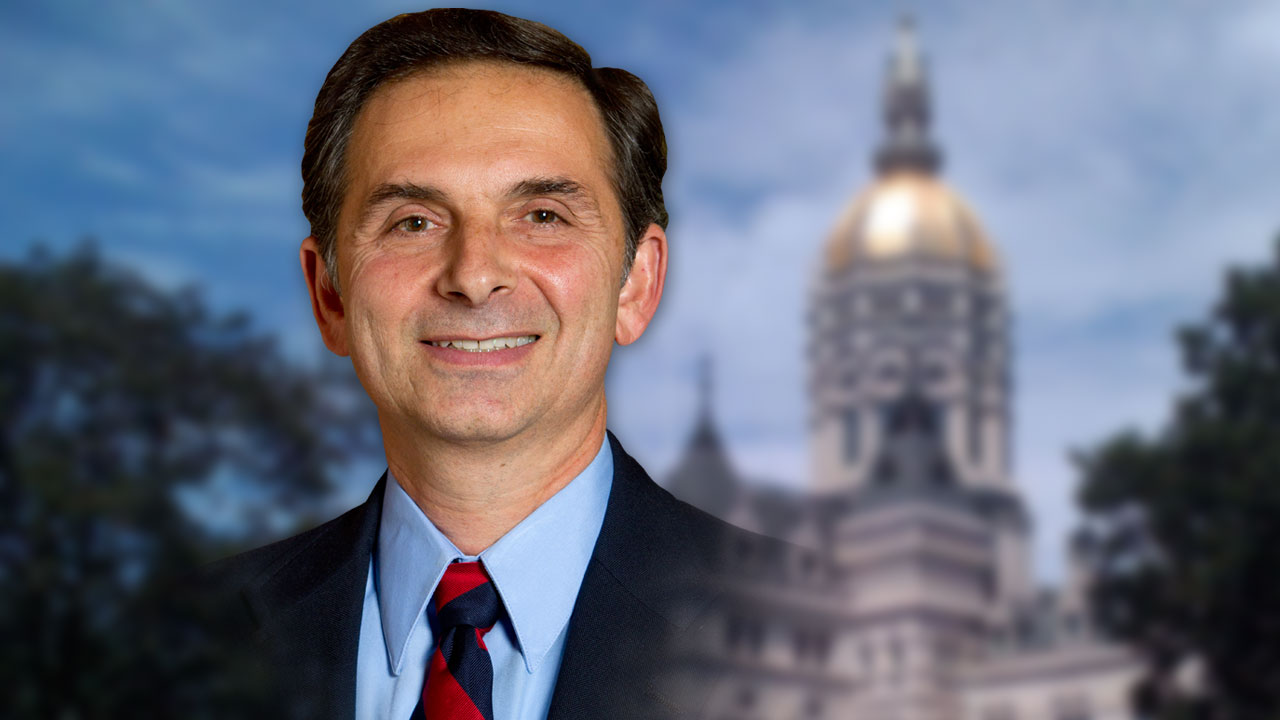[box]by State Rep. Dave Yaccarino[/box]
Raiding – If I could describe what has been happening within the state of Connecticut during the last two years under Governor Malloy’s leadership and the legislative majority, it would be that. Recently, the White House released a report exposing the condition of our roads and bridges, citing that the state’s roads are the roughest in the nation and its bridges rank third-worst in the United States. These findings only reinforce what we already know from traveling on them daily; our state’s roads and bridges are the worst in the nation. This phenomenon is inexplicable to say the least, especially since Connecticut has one of the nation’s highest gas taxes.
In 1984, the General Assembly deemed it essential that our state government be responsible for maintaining the safety of our railroads, highways and bridges. To carry out this responsibility, the Special Transportation Fund (STF) was created. The STF would control monies collected from state taxes on gasoline and was intended to be used specifically for transportation purposes.
Just as I did, this may lead you to ask yourself: How do we explain the condition of our rails, roads and bridges?
According to the Office of Fiscal Analysis (OFA), a nonpartisan professional office of the Connecticut General Assembly, $110 million was raided from the STF just in the last two years, under Governor Malloy’s leadership and the legislative majority. The condition of our railroads, highways and bridges, is evidence that the money designated for the special transportation fund is instead being allocated elsewhere for non-transportation purposes.
A CT Mirror reporter was in agreement with OFA findings, Keith Phaneuf, researched the questionable activity with regards to monies in the STF and found that this “dedicated transportation fund” has been raided for over $1 billion. He also concluded that the monies taken from the STF were used for non-transportation purposes, such as “balancing” the state budget.
Raiding the STF is not what the General Assembly created this designated fund to do when it was established in 1984. The condition of our rails, roads and bridges is a visual reminder of how the legislative majority has failed and misled the taxpayers and commuters of the state of Connecticut.
State government is responsible should undoubtedly operate with a level of integrity; that much is owed to taxpayers and commuters of our state. During my tenure in the General Assembly, I have tried to bring integrity back to the means by which state Government operates. I voted against the state budget in 2013 that broke transportation promises Gov. Malloy made to allegedly safeguard the STF for transportation projects. I was in support of a law that would put a statutory halt on raiding the Special Transportation Fund effective July 1, 2015. This legislation which did pass (PA 13-277) aims to protect the STF by serving as a statutory lockbox.
In the 2014 legislative session, my colleagues and I went farther and tried to put in a constitutional amendment (SJR 23) that would prohibit the use of any money in the STF for non-transportation related projects. The bill failed and never made it to me for a vote, but had it passed by three-fourths, it would have allowed voters to decide whether they want to restrict funds for transportation purposes.
So what can we do to ensure that our taxpaying dollars which supply the STF are used for the intended transportation purposes?
Raiding the STF is unethical, endangering commuters and serving as a blockade to job growth. “It would support millions of jobs,” the President said. “It would give cities and states, and private investors the certainty they need to plan ahead and hire more workers. It would help small businesses ship their goods faster. It would save people money.”
This upcoming legislative session I will continue where I left off, I will advocate for putting a stop to raiding the Special Transportation Fund and will seek to bring back integrity within state Government; after all it’s time to rebuild Connecticut.
